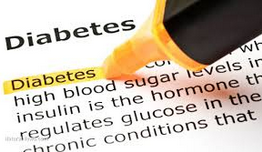Diabetes is one of the great health threats of the 21st century. There are 3.8 million people living with a diagnosis of diabetes in the UK, and 90% of those have Type 2. There are almost 1 million more people living with Type 2 diabetes who don’t know they have it because they haven’t been diagnosed1. Some sectors of the population are more prone to diabetes than others, with Asian and Afro-Caribbean groups being particularly affected.

Recent studies estimate that over 12% of all deaths in the 20-79 year old category are a result of diabetes. This means that prevention and effective management is vital.
The cost to people and families affected is considerable, with life expectancy reduced by up to ten years for type 2 diabetics. Diabetes also significantly increases the risks of heart attacks, strokes, blindness, kidney failure and amputation.
The costs of this to the NHS are considerable. When the diabetes National Service Framework Delivery Strategy was published in 2003, 5% of all NHS expenditure and 9% of hospital expenditure were accounted for by the condition. In addition to direct health costs, the impact on social services expenditure, where diabetes complications increase costs four fold, it significant.

Prevalence of obesity, a major risk factor for diabetes, has trebled since the 1980's - and well over half of all adults are either overweight or obese. It is likely that with a population that is growing older; taking less exercise and more ethnically diverse, costs will be set to increase even more. However by supporting effective management and medicines optimisation, pharmacists can make a significant impact on health costs and patient outcomes.
1 https://www.diabetes.org.uk/about_us/news/new-stats-people-living-with-diabetes
